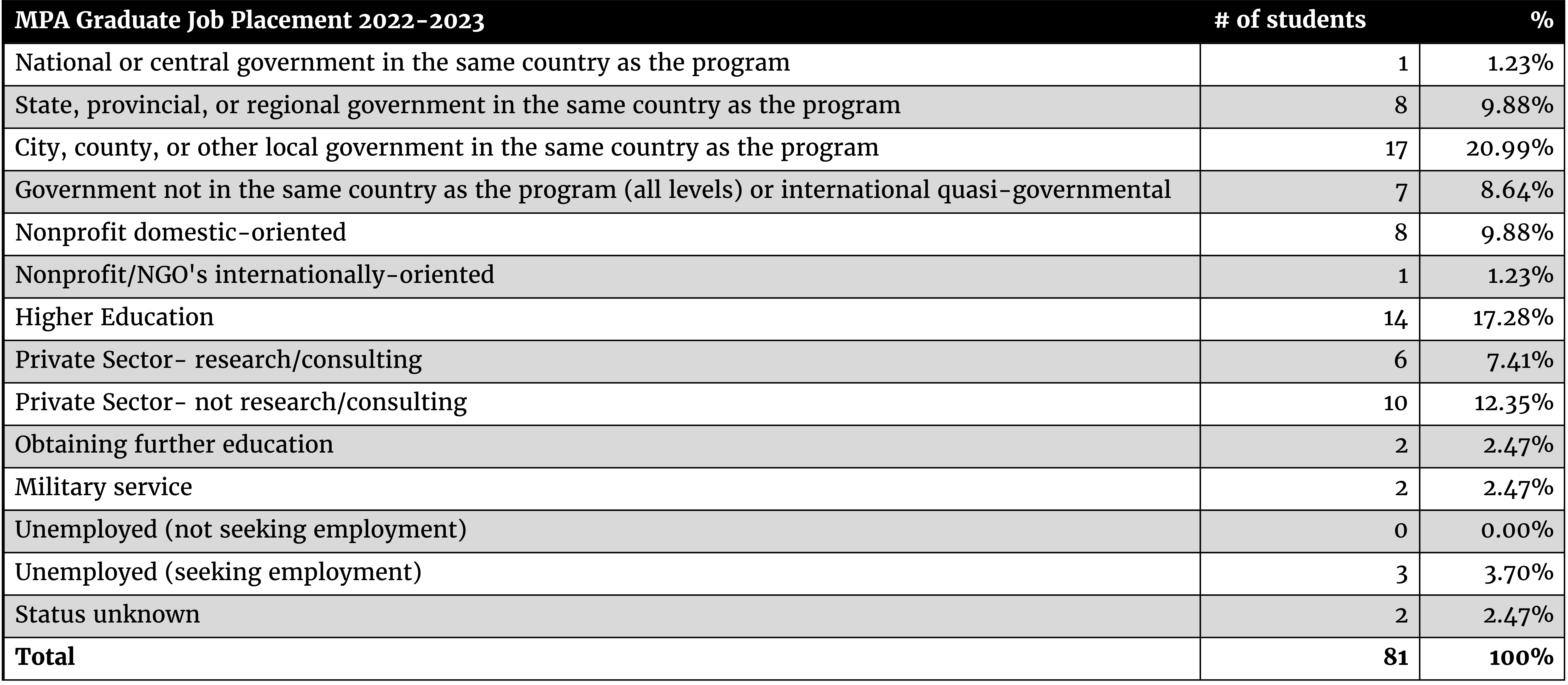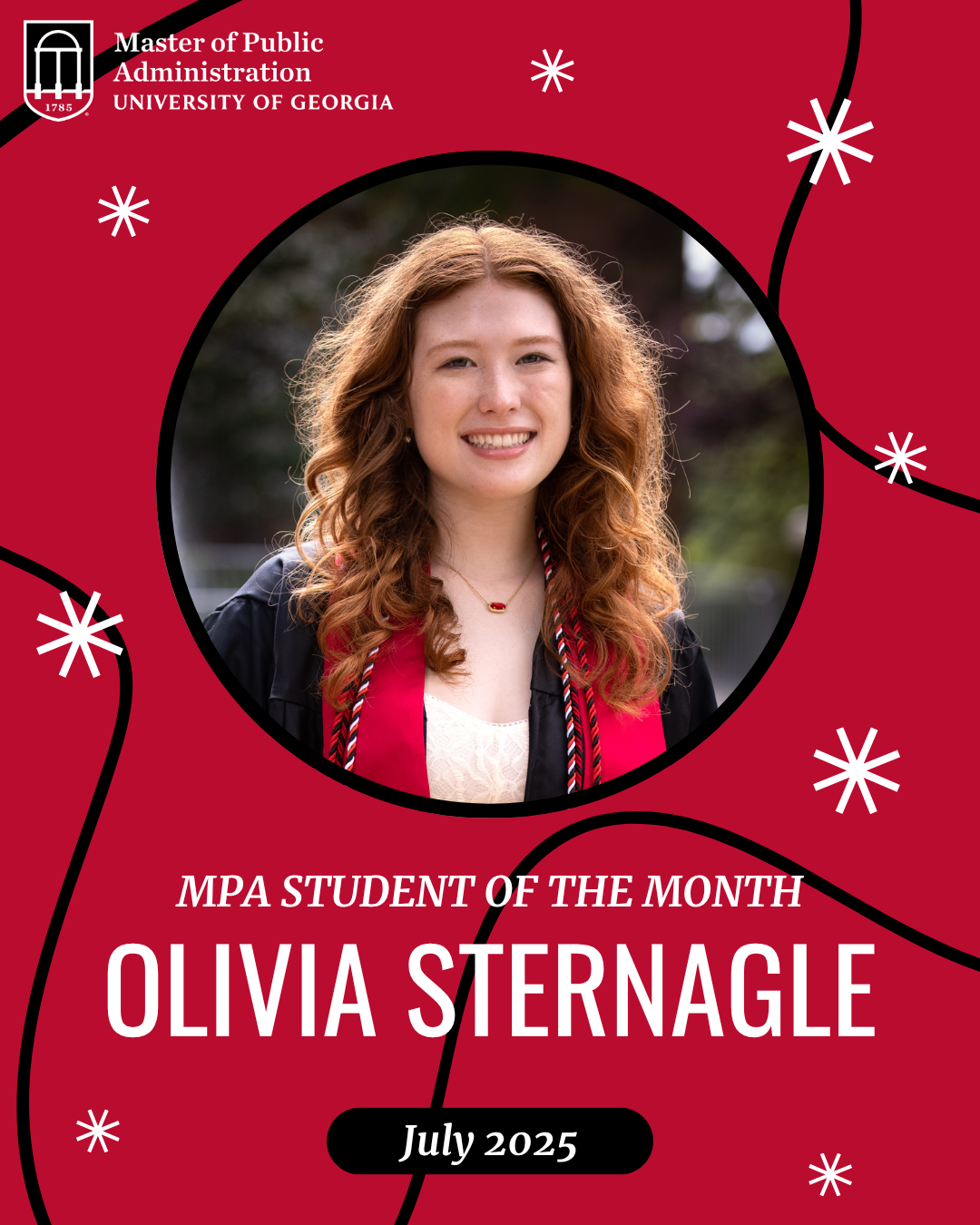Empowering the next generation of public service professionals
The MPA program at the University of Georgia strives to be a leader in educating and inspiring students for managerial and analytical careers in public service. Through instruction by leading scholars, engagement with policy and management problems in the field, and service opportunities within the community, MPA students are prepared for professional careers in government and the non-profit sector, advancing the values of ethics, accountability, and inclusion in democratic governance.
The mission is fulfilled by educating and inspiring students for careers in management, administration, and policy analysis in government and nonprofit organizations domestically and abroad. The program produces leaders with a wide range of analytic, communicative, and managerial abilities to meet the demands of contemporary public and nonprofit sectors. The MPA curriculum encourages within students the development of the intellectual capacities and professional skills necessary for the successful performance of critical public service jobs. The program accomplishes these goals by contributing to the advancement of the public administration and policy field through teaching, research, and public service. The program also creates an awareness of and sensitivity to ethical concerns and accountability issues within the public service arena.










